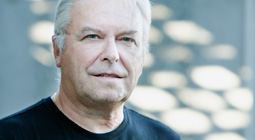Networked Humanities: From Within and Without the University
A Digital Humanities Symposium
February 15-16, 2013
The University of Kentucky
Writing, Rhetoric, and Digital Media Program
Keynote Speakers:
Kathleen Stewart, Professor of Anthropology, University of Texas
Malcolm McCullough, Professor of Architecture, University of Michigan
Of all the topics of interest to the digital humanities, the network has received little attention among digital humanities proponents. Yet, we live in a networked society: texts, sound, ideas, people, movements, consumerism, protest movements, politics, entertainment, academia, and other items circulate in networks that come together and break apart at various moments. While there exist networked spaces of interaction for digital humanities work – such as HASTAC or specific university centers - we still must consider how networks affect traditional and future goals of humanities work. Have the humanities sufficiently addressed the ways their work, as networks, affect other networks, within and outside of the humanities? What might be a networked digital humanities or what is it currently if it does, indeed, exist? Can an understanding of the humanities as a series of networks affect – positively or negatively - the ways the public perceive its research, pedagogy, and mission?
The University of Kentucky’s Writing, Rhetoric, and Digital Media Program invites proposals for a two day symposium devoted to discussion of the implications of a networked digital humanities. The symposium will bring together academic and professional audiences in order to rethink the taxonomy of humanities so that we emerge with a network of people and ideas beyond the traditional taxonomy of “humanities” work. Thus, talks will not be limited to traditional humanities areas of study.
Possible topics might include (but are not limited to):
· Public humanities work
· Networks among disciplines
· Ecologies
· Animal and human networks
· Online spaces
· Mapping/Geography
· Economics and the humanities
· Labor and the humanities
· Digital production of texts
· Community work
· Workplace organization
· The university as network
· Archives and Obsolescence
February 15-16, 2013
Panels, roundtables, performative pieces, and alternative forms of delivery are welcome and encouraged.
No registration fee to attend or present. Please send 250 word proposals to Jeff Rice j.rice@uky.edu by September 1, 2012.

 Dr. Derek Gregory is a member of the Department of Geography and one of two Peter Wall Distinguished Professors at the Peter Wall Institute for Advanced Studies at the University of British Columbia in Vancouver, Canada. Dr. Gregory trained as an historical geographer at the University of Cambridge. His research focused on the historical geography of industrialization and on the relations between social theory and human geography and explored a range of critical theories that showed how place, space, and landscape have been involved in the operation and outcome of social processes. His 1982 book, Regional Transformation and Industrial Revolution, was staged on the classic ground of E.P. Thompson’s Making of the English Working Class. Following a move to Vancouver in 1989, Gregory’s work was reinforced by postcolonial critique, outlined in his 1989 book Geographical Imaginations. This new phase of work owed much to Edward Said’s critique of Orientalism, but it was much more concerned with the corporeality and physicality of travel – with embodied subjects moving through material landscapes – and with the constantly changing (often mislaid) cultural baggage of the travelers. And it paid attention what travelers mapped, sketched, and photographed – and to the consequences these representations had for their encounters.
Dr. Derek Gregory is a member of the Department of Geography and one of two Peter Wall Distinguished Professors at the Peter Wall Institute for Advanced Studies at the University of British Columbia in Vancouver, Canada. Dr. Gregory trained as an historical geographer at the University of Cambridge. His research focused on the historical geography of industrialization and on the relations between social theory and human geography and explored a range of critical theories that showed how place, space, and landscape have been involved in the operation and outcome of social processes. His 1982 book, Regional Transformation and Industrial Revolution, was staged on the classic ground of E.P. Thompson’s Making of the English Working Class. Following a move to Vancouver in 1989, Gregory’s work was reinforced by postcolonial critique, outlined in his 1989 book Geographical Imaginations. This new phase of work owed much to Edward Said’s critique of Orientalism, but it was much more concerned with the corporeality and physicality of travel – with embodied subjects moving through material landscapes – and with the constantly changing (often mislaid) cultural baggage of the travelers. And it paid attention what travelers mapped, sketched, and photographed – and to the consequences these representations had for their encounters.